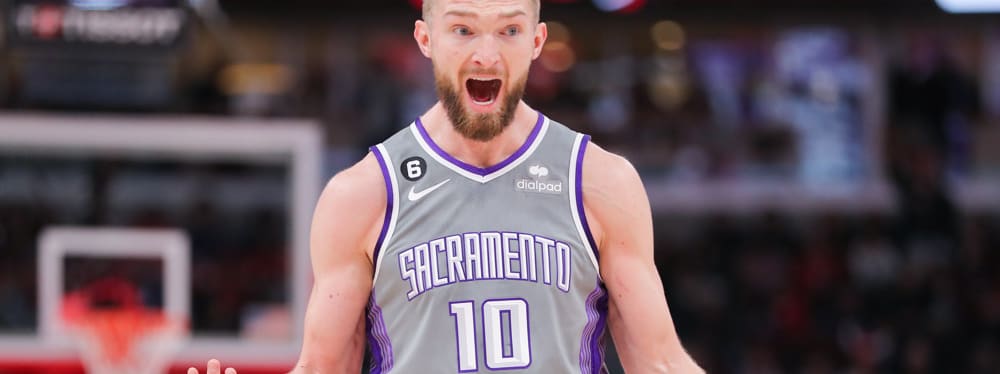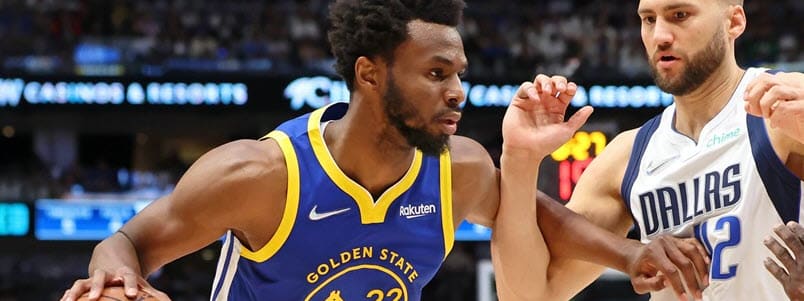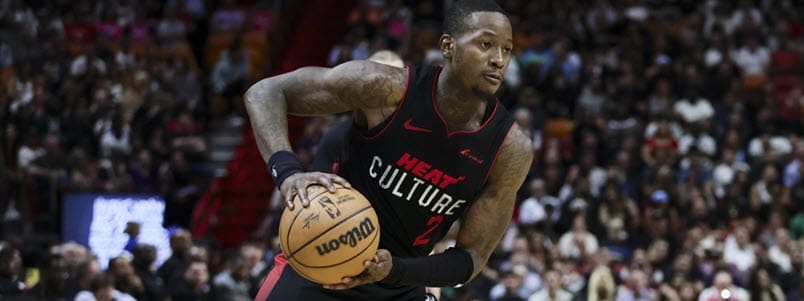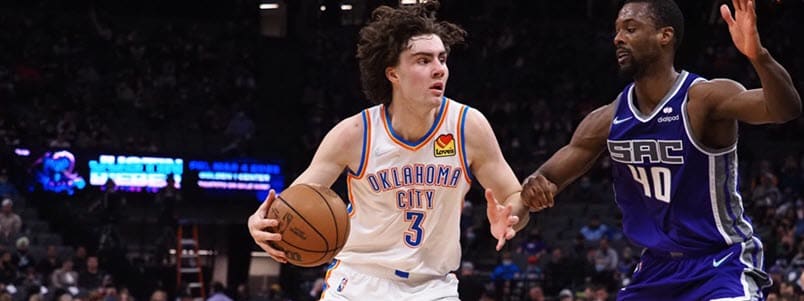Recent RotoWire Articles Featuring Patty Mills
See More
After some offseason shenanigans, Mills ended up in Atlanta, where he will likely play a limited role off the bench. Having peaked a number of years ago, Mills is now in the twilight of his career. He does provide the Hawks with a nice veteran piece, someone who can play spot minutes as required. He ended the 2022-23 season barely inside the top 400, averaging just 6.2 points per game. Given he was a fringe standard league option even when playing significant minutes, it's hard to see him being anything more than a sporadic streaming option if and when he is called upon to play a meaningful role.
At age 33, Mills had one of the most productive seasons of his 13-year career in 2021-22 -- his first campaign in Brooklyn. The veteran point guard averaged 11.4 points, 2.3 assists and 1.9 rebounds while shooting 40.0 percent from three. He parlayed his strong play into re-signing with the Nets via a two-year, $14.5 million contract this offseason. A healthy Joe Harris, who's dealt with lingering ankle issues the last two years, and/or a Year 2 jump for microwave scorer Cam Thomas could potentially eat into Mills' expected playing time. However, Mills has a long history of being an elite shooter -- five seasons over 40.0 percent -- and should, at minimum, garner a meaningful role as a score-first guard off the bench.
Mills has been an extremely consistent producer for the Spurs over the past decade and will look to replicate that in Brooklyn. Last season, the 33-year-old averaged 10.8 points, 2.4 assists and 1.7 rebounds across 24.9 minutes per game. He played all 68 games and finished 161st in overall fantasy scorers -- the seventh time in the past eight years that he cracked the top 200. Mills is familiar with a reserve role, so taking a backseat to Kyrie Irving and James Harden shouldn't be a problem. When the Nets are healthy, Mills will garner plenty of open looks as defenses key in on the superstars. He will also provide insurance as an immediate spark if he is forced into a spot start or two. Mills will face competition from defensive-minded Jevon Carter and rookie flamethrower Cameron Thomas for reserve minutes, but he will likely command the majority of the playing time out of the trio of backup point guards.
In his 11th season, Mills averaged a career-high 11.6 points and 2.3 triples to go with 1.8 dimes and 1.6 boards. He logged 22.5 minutes per contest, and while his numbers were nothing to hoot-and-holler about, he provided some quality shooting for fantasy managers in category leagues, going 43.1 percent from the floor, 86.6 percent from the free-throw line and 38.2 percent from three. Mills has made a name for himself as a three-point specialist off the bench, and he drained at least three triples in 21 games. A career 38.9 percent three-point shooter, Mills should be utilized for his long-range prowess in category formats this season, though his services are best reserved for deeper points leagues. It's unclear what Mills' playing time will look like this season, as none of Derrick White, Dejounte Murray or Bryn Forbes averaged more than 25.6 minutes in the Spurs' backcourt rotation in 2019-20. Based on recent seasons with the Spurs, it's reasonable to project Mills for minutes in the low-20's.
Mills continued his solid play off the bench in his eighth season for the Spurs. The Australian guard averaged 9.9 points, 3.0 assists and a career-high 2.2 rebounds across 23.3 minutes. He appeared in 80 contests but made just one start. Mills drained 1.9 threes per tilt for the second straight season and has averaged a healthy 1.7 triples over the last six seasons. Entering his 11th NBA season, Mills' value lies primarily in his three-point shooting, which he's converted at a solid 39.1 percent clip in his career. Mills' playing time could take a step back in 2019-20 with Dejounte Murray expected to be back after suffering a torn ACL that forced him to miss all of last season. Derrick White showed a lot of upside and is expected to start in the backcourt with Murray. Mills is a late-round target in deep leagues, but he doesn't need to be rostered in standard formats.
With Tony Parker getting older and also playing in just 55 games due to injury, Mills saw his most extensive action since joining the NBA in 2009. He wound up starting 36-of-82 games, while averaging a career-high 25.7 minutes. That translated to 10.0 points, 2.8 assists and 1.9 rebounds, though it was his three-point shooting that kept him on the radar in Fantasy leagues. Mills recorded 1.9 three-pointers per game and hit at a 37.2 percent clip. Still, the Spurs turned to promising rookie Dejounte Murray to work with the top unit over the final few months of the season, which resulted in Mills becoming a fixture in the second unit. San Antonio has clearly committed to Murray as the point guard of the future, so Mills is set for backup duties once again heading into 2018-19. He'll provide a reliable scorer and a ball-handler with the reserves, though he's unlikely to see much more court time than the 25.7 minutes he averaged a year prior, even with Parker signing elsewhere in free agency. As a result, Mills will simply be a three-point specialist for those in deeper leagues looking for a boost in that category.
Mills had yet another solid campaign backing up Tony Parker at point guard this past season, playing in 80 games and posting averages of 9.5 points, 1.8 rebounds, 3.5 assists and 1.8 three-pointers across 21.9 minutes. The 9.5 points marked his best scoring average since the 2013-14 season and he shot 44 percent from the field and 41.4 percent from the the three-point line, both of which were improvements from the previous year. Mills' reliability as a reserve point guard netted him a four-year, $50 million contract extension this offseason, and his role should be on the rise moving forward. The Spurs are slated to be without Tony Parker through at least January because of a ruptured quadriceps, which leaves Mills with the most experience at the position. He'll be the favorite to open the season as the starter, but should receive plenty of competition from impressive second-year player Dejounte Murray. The two could end up taking a committee approach, although that should be sorted out during training camp. Either way, Mills' value should be on the rise.
Shoulder surgery sidelined Mills for the first 31 games of the season in 2014-15, though he finished the next 51 games of the season relatively healthy. His production dipped from previous years, most likely due to the aftermath from the recovery of his shoulder procedure. Mills averaged 6.9 points, 1.2 three-pointers, 1.5 rebounds, 1.7 assists, and 0.5 steals in 16 minutes per game. From an efficiency standpoint, Mills had the worst season of his career in 2014-15, shooting 38 percent from the field, 34 percent from three, and 83 percent from the free-throw line. Healthy, Mills will most likely be the primary backup to Tony Parker, though he'll get some competition from Ray McCallum and Jimmer Fredette. With Parker aging and the Spurs owning one of the deepest teams in the league, Mills could see increased action at the lead guard spot should coach Gregg Popovich decide to reduce Parker's minutes to fewer than the 29 per game that he played last season. Mills is a small shoot-first guard who is probably best in a bench role that affords him the luxury of being able to launch long-range shots without leaving the Spurs' core out of the equation. We've seen Popovich use his third-string guards to fill in at starter when Parker sits so that the rest of the rotations can remain intact, and that makes Mills' bench roll pretty much only a bench role with little hope for growth.
Patty Mills was a key piece in the Spurs' championship run last season. Entering his sixth campaign, Mills will be recovering from rotator cuff surgery on his right shoulder which is expected to sideline him until February. Last season, Mills averaged 10.2 points, 2.1 rebounds, 1.8 assists, 0.8 steals, 0.1 blocks, and 1.7 three-pointers in 19 minutes per game through 81 games. He shot 46 percent from the field on 82 attempts per game and 89 percent from the line on 1.0 attempts per game. Mills signed a free-agent deal with the Spurs this offseason, despite the offseason surgery and was looming as a late-round fantasy sleeper. The injury pretty much rules Mills out of all discussion in standard leagues in drafts, but he still retains value in dynasty and deeper league formats. Mills finished last season seventh in three-point percentage, hitting 42 percent of his shots from deep, and also finished ninth in turnover percentage, turning the ball over just eight percent of the time. When Mills returns and has shaken off the rust, he should regain his role as the Spurs' backup point guard and go-to scorer on the second unit.
Patty is giving Cory Joseph a run for his money in the race for the backup job in camp, impressing with his scoring abilities. Even if he wins the role, Mills should only see limited touches in the second team offense with options such as Ginobili, Belinelli and Diaw on the floor.
Mills finished the 2011-12 season with the Spurs after playing in China during the lockout. He has some scoring ability - he posted back-to-back 30-point games in the last two contests of the year - and could carve out a decent-sized role as primary backup to Tony Parker.
A second-round selection in this year's draft, Mills suffered a broken foot shortly after the draft and has been sidelined since. The Blazers haven't offered Mills a contract yet, but he could be with the team once he returns to the court in late November.













